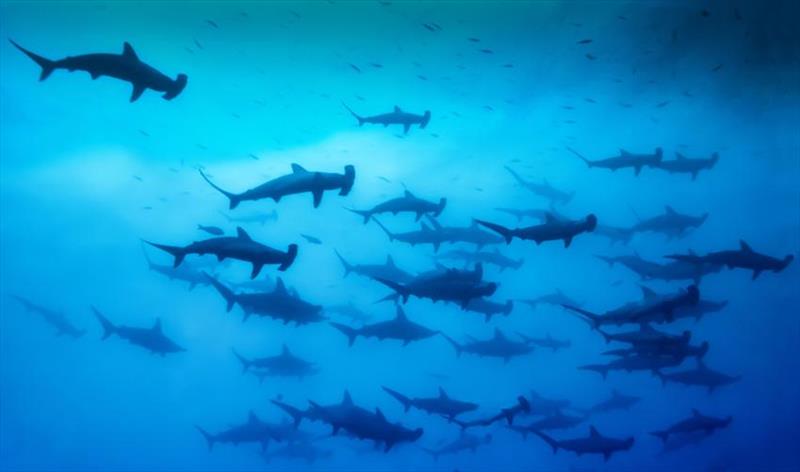
The effects of climate change on sharks
by NOAA Fisheries 1 Aug 2021 18:37 UTC

Schooling hammerhead sharks © iStock
Climate solutions start with research
Understanding the effects of climate change on sharks and other fish populations is an emerging area of study and a priority for NOAA Fisheries. Climate change is causing warming seas, acidification, rising sea level, and other long-term shifts in the environment. It is already affecting numerous marine species in complex ways.
Sharks are no exception. The impacts of climate change on marine life are expected to continue into the future, potentially resulting in:
- Shifts in the distribution of fish populations
- Changes in migratory patterns
- Changes in the availability of suitable habitat
- Shifts in population sizes
- Changes in the availability of prey
We are conducting research on many species and across fisheries to find ways to characterize such ecological shifts and address climate vulnerability and resilience.
The range of change
A climate vulnerability assessment for 82 fish species, including some sharks, off the northeastern United States found that impacts are likely to vary by species. In general, sharks may have lower overall vulnerability than other marine organisms (e.g., shellfish, salmon, or eels). They are less likely to experience changes in abundance. However, because of their extensive range, sharks have a high likelihood of shifting their distributions or expanding into new habitats to follow preferable ocean conditions.
In Atlantic and Pacific U.S. waters, many fish species are shifting northward as the oceans continue to warm. For example, species like the thresher shark, which are common off southern California, are expected to become more common off Alaska along the Pacific coast. Along the northeastern United States, smooth dogfish may actually gain suitable habitat, whereas thorny skate (a shark relative) may lose habitat as the region warms. Some species are also shifting to deeper, cooler waters as shallow coastal environments warm.
Complex considerations
Understanding any potential climate change impacts on sharks is further complicated by the need to characterize climate effects on their prey species. Population shifts in more sensitive prey could influence the distribution of predators. For example, zooplankton are prey for filter-feeders like the basking shark. Shifts in their seasonality or abundance could force these sharks to abandon historical foraging grounds and seek out more productive areas.
Such complexities require a more holistic approach to studying these large-scale environmental shifts. This is why NOAA Fisheries is also advancing its efforts on ecosystem-based fisheries management. For example, shark catch rates and species diversity metrics are included in State of the Ecosystem reports to track long-term changes in fish communities. EBFM Regional Implementation Plans also account for shark populations.
NOAA Fisheries will continue to research creative ways to adapt fisheries management as the effects of climate change are likely to be variable and complex depending on the species and region.